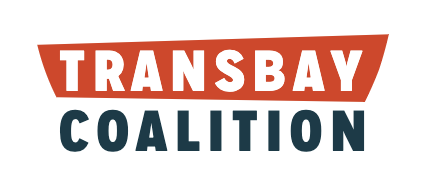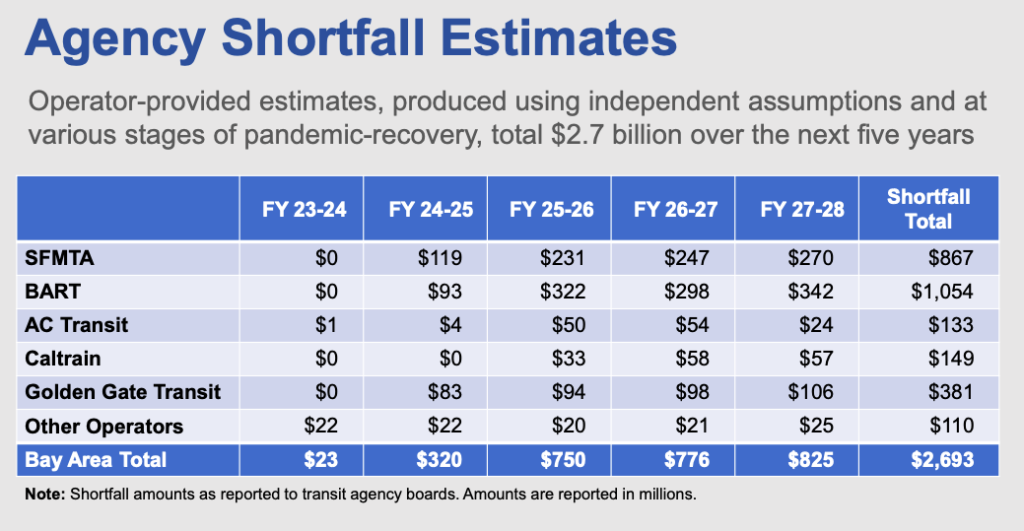The state budget signed by the governor at the end of June provided helpful funding to avert the fiscal cliff facing major Bay Area transit services. But the funding did not go far enough to prevent cuts and service degradation to agencies with upcoming fiscal cliffs including BART, Caltrain, SFMTA and AC Transit.
As summarized by the Metropolitan Transportation Commission, the budget provides $1.1 Billion from Cap and Trade sources that can be used flexibly for operations – this will provide about $400 Million that can be used for transit operations.
The budget also retained $4 Billion in Transit and Intercity Rail capital funding that the governor had initially proposed to cut, of which about $800 million is anticipated for the Bay Area. Re-using this capital money for transit operations would leave billions in federal matching on the table.
State budget leaves agency shortfalls
The Bay Area is starting to plan for a regional transit funding measure in 2026 – stay tuned for opportunities to give feedback in August. But agencies, including BART, SFMTA, Caltrain, and AC Transit face gaps and potential cuts before revenue would start flowing in 2027.
Also, the budget bill called for a state task force to explore state support for operating funding. According to analysis by SPUR, the State of California spends much less on transit operations than other states with major transit systems. That task force will complete by the end of 2025, so any new revenue from recommendations of the task force requiring legislation would also likely not start flowing until 2027.
New bill to prevent service cuts
On Wednesday, July 5, SB 532, a bill that would go far to prevent service cuts and service degradation for BART, Caltrain, SFMTA and AC Transit, passed the Assembly Transportation Committee.
The lead authored is Senator Wiener, who was the leading champion for the state funding, The bill would raise bridge tolls by $1.50 (adjusted for inflation) for a 5-year duration on all state-owned bridges in the region, except the Golden Gate Bridge (which has its own bridge toll district). Co-authors include Senators Becker and Cortese, and Assembly Members Bonta, Haney, Lee, Ting, and Wicks.
The temporary toll increase would raise $600-650 million over 5 years. The funding would be targeted to avoid service cuts; support reconfiguring transit service for new travel patterns; and improve safety, cleanliness, and customer experience.
Senator Wiener is working with TransForm and other groups to include equity measures to mitigate the affect on low-income people who need to drive. See this blog post from TransForm for more on the bill.
We estimate that this would go a long way toward filling the gap until 2027. MTC has potentially identified another $300 million that could be used for operating funding. This leaves a gap of about $700 million through 2027, for agencies other than Golden Gate.
SB532 would provide a “bridge” to keep transit running while Caltrain electrifies, and while the region works to make transit more convenient with free transfers and integrated fares, and, while the region is planning a regional ballot measure for 2026 to put Bay Area transit service on stable footing.
The next milestones on the bill are expected in early September after the legislature’s summer recess.

